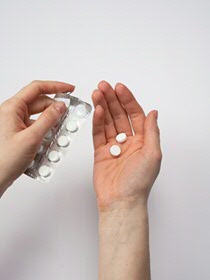Langetermijneffecten behandelingen psychische stoornissen bij kinderen onduidelijk
Kinderen met psychische aandoeningen als ADHD, angst en depressie worden vaak behandeld met psychotherapie en/of medicijnen, maar voor de langetermijneffecten van deze behandelingen is te weinig wetenschappelijke onderbouwing. Dat stellen onderzoeker Annelieke Roest en haar collega’s in een onlangs gepubliceerd artikel.

Bijwerkingen
Roest en haar collega’s onderzochten of verschillende soorten behandelingen, zoals antidepressiva en cognitieve gedragstherapie, bij kinderen in de leeftijdsgroep 6 tot 12 jaar ook na twee jaar nog een positief effect hadden. Dat deden ze door eerder uitgevoerd onderzoek op systematische wijze in kaart te brengen.
De onderzoekers concluderen dat er maar weinig onderzoek naar de langetermijneffecten van de behandelingen is gedaan. Daardoor weten we niet wat of deze behandelingen ook na verloop van tijd nog effectief en veilig zijn. Roest: “Uit ons onderzoek bleek dat de positieve langetermijneffecten van psychologische en farmacologische behandelingen op zijn best klein te noemen zijn terwijl we van deze behandelingen niet goed weten wat de negatieve effecten zijn.” Roest noemt als voorbeelden van mogelijke negatieve effecten bijwerkingen van medicatie of “aangeleerde hulpeloosheid” bij psychotherapie.
Watchful waiting
De onderzoeker pleit er daarom voor per kind te bekijken wat de beste behandelopties zijn. “Voor ieder kind moet zo goed mogelijk een afweging gemaakt worden tussen de te verwachte gunstige en nadelige effecten van behandeling, zowel op de korte als lange termijn.” Met name als de klachten mild zijn, zou “watchful waiting” (‘aandachtig nietsdoen’), wel eens een betere optie dan behandeling met medicatie of psychologische behandelingen kunnen zijn, vindt Roest.
Roest, A.M., De Vries, Y.A., Wienen, A.W., & De Jonge, P. (2022). Editorial perspective: Are treatments for childhood mental disorders helpful in the long run? An overview of systematic reviews. Journal of Child Psychology and Psychiatry.
Meer nieuws
-
17 februari 2026
Van ghostbuster tot rampenonderzoeker
-
03 februari 2026
‘Daar zit een goeie kop op’
-
20 januari 2026
Alcohol, appen en e-bikes


